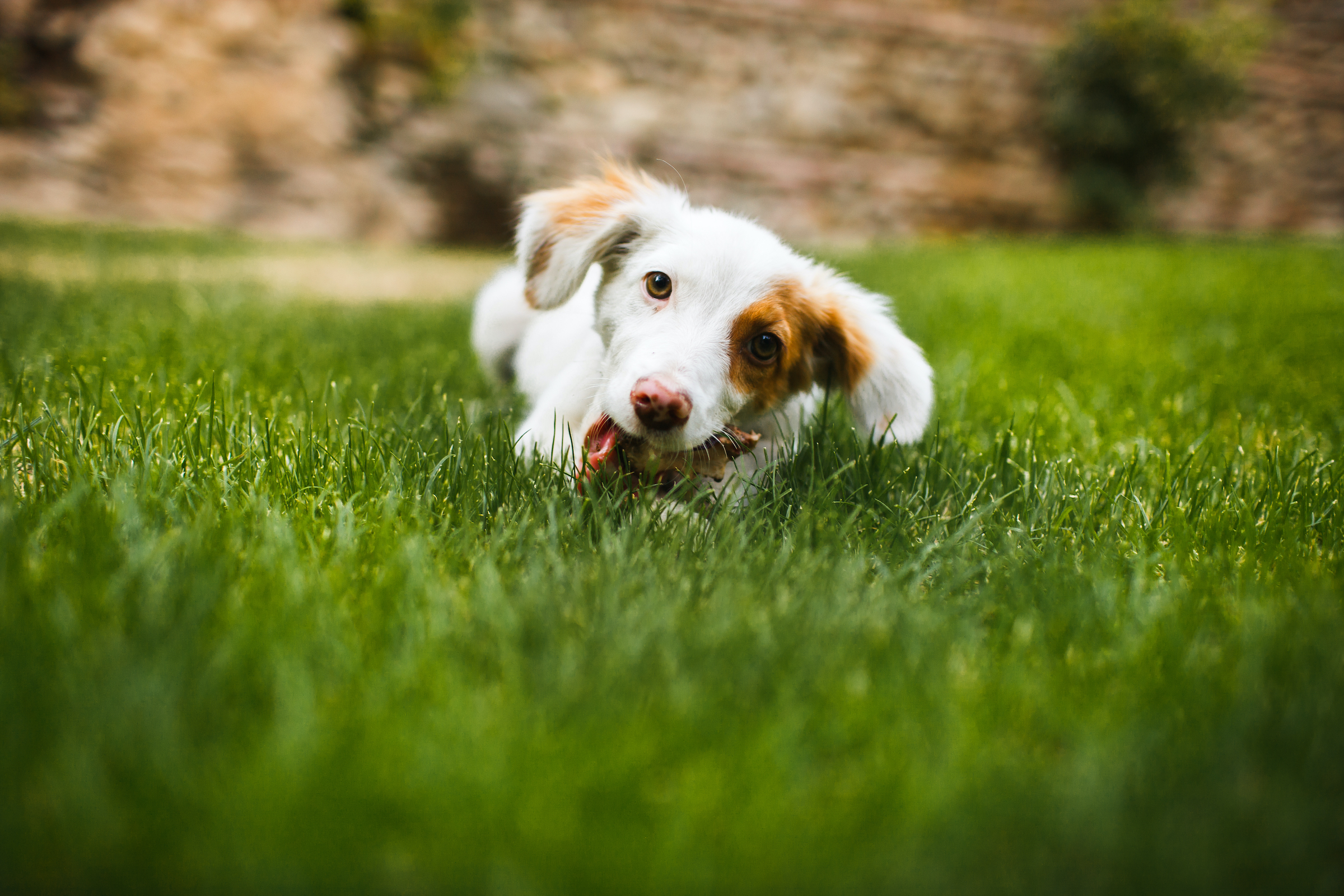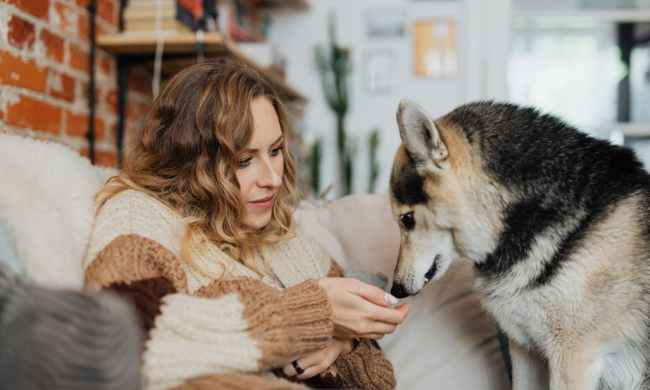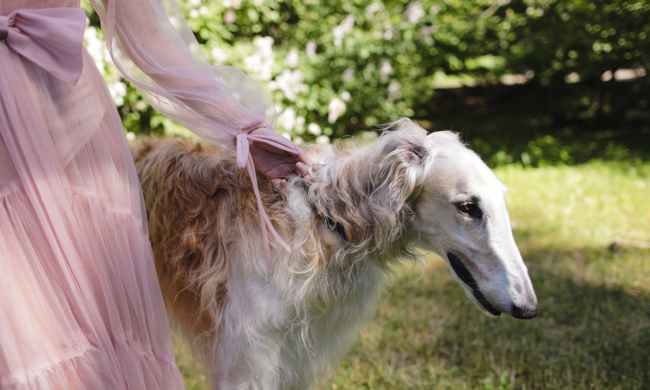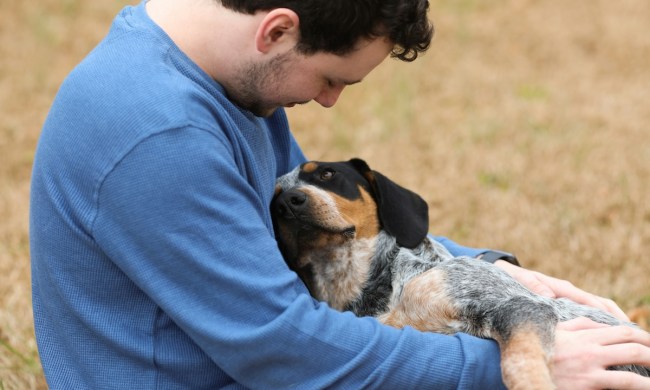Yep, we’re going there. It might be gross and kind of smelly, but canine poop-eating (aka coprophagia) is also more common than you think. According to the American Kennel Club (AKC), roughly 16% of dogs have been caught in the act at least five times. Luckily, with a little know-how and a close watch on your fur baby, you can learn how to stop your dog from dining on this, well, interesting delicacy.
First things first: You need to know why your dog eats poop in the first place. Then, you can take the best course of action for you and your pup. It might not be the most glamorous part of pet parenting, but it’s a part of it all the same. Here’s what you should know:
Why does my dog eat poop?
These are some of the most common reasons — whether considered “normal” or otherwise — why your dog might consume feces.
1. Your dog is a puppy or new mother
Surprisingly, some dogs and pups eat feces for nutritional benefit — and it’s completely normal! For about the first three weeks of life, according to the AKC, a mother dog will lick her new pups to help them eliminate. Here comes the fun part: She may also consume their feces afterward, as will the pups as they start to learn from her.
Fortunately, this won’t cause any health issues for Momma or her babies. A dog isn’t likely to get sick from consuming their own droppings, though feces from other animals can contain toxins and other harmful contaminants.
2. Your dog’s dietary needs aren’t being met
Many dogs eat things that aren’t part of their normal diet because what they eat every day doesn’t meet their nutritional needs. Scavenging for remains and whatever else they can find is an instinctual way of meeting their own dietary needs — and of letting us know they need an extra boost!
Although it sounds simple on the surface, figuring out why they need additional nutrients can be tricky. It may end up as simple as switching to different dog food, but it can also result from an underlying issue such as diabetes, parasites, metabolic diseases, or malabsorption syndromes. In this case, it’s best to let your veterinarian help find the root cause of the issue.
3. Your dog wants your attention
If you previously caught your dog in the act and reacted with disgust, shock, or even anger, your dog will remember this! He may even use it to his advantage when he wants your attention. It may seem counterintuitive to engage you by doing something so gross, but here’s the thing about dogs: Attention, whether positive or negative, is attention.
If you’ve ruled out health issues and think this might be the case, try to keep your dog interested in both activities and interactions to fulfill his mental and social needs. Bonding over agility or obedience training would be a great way to keep your pup engaged, as would visits to the local dog park.
4. Your dog is anxious
This is often seen in dogs who eat their own feces: They have an accident because of stress, remember how they were punished for previous accidents, then try to hide the evidence. Even if this behavior doesn’t make sense, be patient with your pup. People often act irrationally when anxious, too.
If this new eating behavior comes on suddenly or accompanies any other changes in behavior, you should let your trusted veterinarian know. It’s also important to narrow down the causes of your pup’s anxiety so you can help him live a calm and happy life.

How to stop your dog from eating poop
The way you prevent poop consumption depends on why it happens in the first place.
- If you have a young puppy or new mother dog who eats feces, all you really need to do is wait it out. You also can help keep their den clean to discourage this behavior, though some canine mommas prefer to have their space.
- For dogs whose diet may be lacking, you have many options. You can try switching to a veterinarian-recommended kibble that provides a whole, balanced meal, but you can also invest in supplements or other helpful products. The AKC recommends vitamin B or even just a canine multivitamin to help combat this gross behavior.
- If your dog enjoys snacking on the droppings of other species, try to keep him separated from other animals’ bathroom areas. There are also several stool- eating deterrent supplements that you can try with your pet.
- The best things you can do, though, are training with your dog and keeping your yard as clean as you can. Commands like “leave it,” “no,” and “come” can go a long way in helping him stay healthy.
When in doubt, don’t be afraid to ask your veterinarian for guidance. They can certainly help figure out why your dog is consuming feces and what you can do to help him, so don’t be embarrassed! As gross as it seems to us humans, eating poop is something the majority of dog owners can relate to. Poop happens!




